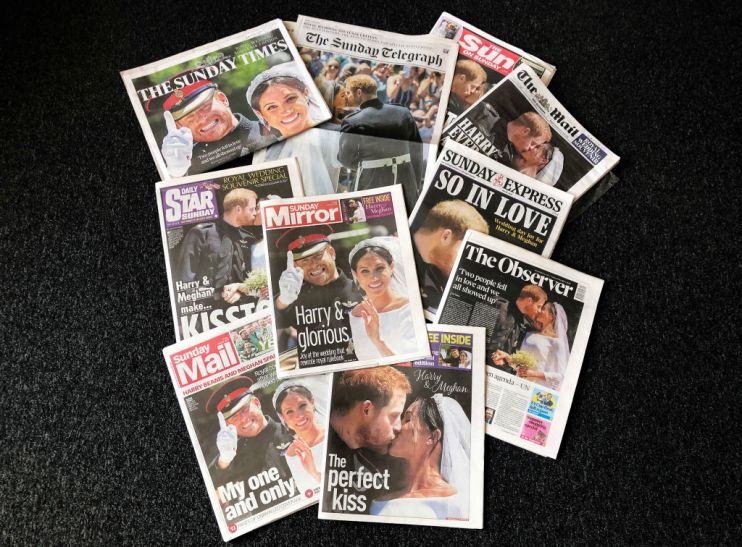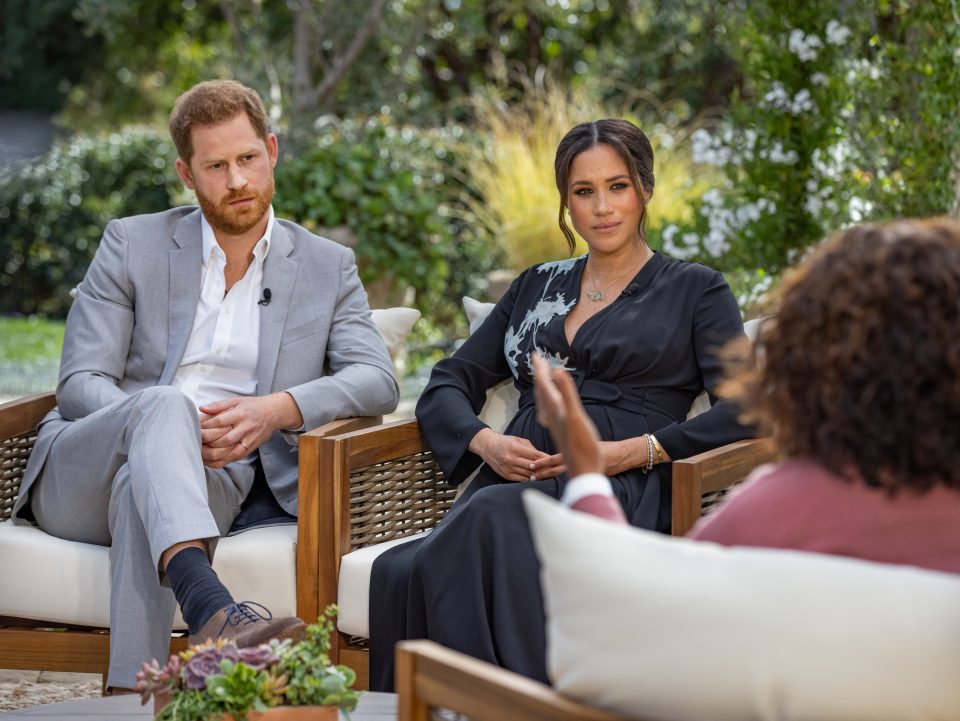Screenshot: Does the UK media have a racism problem?

This week:
**Media Moment of the Week: GMB gets a new frontman
**Does the UK media have a racism problem?
**Deliveroo’s IPO giveaway; BT gets in a bind
Media Moment of the Week: GMB gets a new frontman
What a week it’s been for ITV. In the space of 24 hours it racked up bumper ratings for the Harry and Meghan interview, released its annual results, showed Piers Morgan the door and lost £200m from its market value.
Somewhere in the middle of all this it also played host to a brilliant moment from presenter Alex Beresford (yes, he is the weather guy), who proved to the show’s outspoken frontman that it’s possible to present a strong argument without ranting or indeed raving.
As for Morgan himself, the prospect of two new opinionated news channels launching this year will soften any blow from leaving ITV. Andrew Neil this week said the controversialist would be a “huge asset” to GB News, but could Murdoch’s News UK TV beat them to it?
Does the UK media have a racism problem?
It’s not been a good week for news. Nor has it been a good one for those who report the news. Among other bombshell revelations in their blockbuster Oprah interview, Meghan Markle and Prince Harry accused parts of the tabloid press of racism. This prompted a hasty rebuttal from the Society of Editors, which insisted the UK media was “not bigoted” and branded the accusations “unacceptable”. But after editors at titles including the Guardian, Financial Times and Evening Standard objected to the statement, alongside more than 250 journalists of colour, the SoE issued a half-hearted retraction and its boss Ian Murray has now stepped down.
The relationship between the Sussexes and the press has been fraught, to say the least. When the pair married in 2018, the royal wedding was given extensive and jubilant coverage in the tabloids. Since then, however, it has descended into an acrimony that, to many people, seems more like a campaign against the couple. You only need to compare headlines on stories about Markle and Kate Middleton (on everything ranging from baby bumps to avocados) to see that the reporting is skewed. Nor is this treatment restricted to royals. Man City star Raheem Sterling has accused the press of fuelling racism through its unfair portrayal of young black footballers (buying a £2m house is unacceptable when you’re black, but a nice gift for your mum if you’re white, apparently).
The argument in defence of the media appears to boil down to a lack of “overt” racism (which, it seems, would consist exclusively of offensive language), but this brazenly overlooks the implicit and unconscious bias behind these double standards. You could argue that the vitriol directed at Meghan and some footballers are entirely unrelated to race, but this does not explain why it is always the minority-ethnic stars who get the sore deal. The correlation not causation defence, in this case, falls woefully short.
Then there are the more ingrained forms of bias found in reporting. A 2016 survey by Cardiff University found the British press was “uniquely aggressive in its campaigns against refugees and migrants”. Separate research by the University of Leeds outlines how ethnic minorities are racialised by the press, receiving proportionally low exposure generally but disproportionately high coverage on specific news agendas such as crime and terrorism. These are just a few of the studies on the issue.

I have deliberately not posed the question of whether the UK media is racist. First, the media is not a homogenous body, and treating it as such is a bit like holding a penguin responsible for the crimes of a pigeon. Sure, they’re both birds, but that’s about all they have in common. Second, racism is clearly a nuanced issue that eschews blanket definitions. As with all part of society, some people in the press will be racist, some won’t. This is why the SoE’s outright dismissal of the problem was so wrong.
The question, instead, is whether the UK media has enabled and perpetuated racism to such an extent that it has become institutionalised. Judging from the examples above, and the response of those who have fallen victim to racist coverage, this appears to be the case. So what can be done to address the issue? The most obvious remedy (if not outright solution) is to rectify the stark lack of diversity in British newsrooms. According to the latest estimates, just six per cent of journalists are BAME (compared to 14 per cent of the population in England and Wales). You can’t call out a racist headline or story angle if you aren’t even in the newsroom, let alone in the editor’s chair. Rectifying this imbalance, as some news organisations are trying to do, would not only help stamp out the unconscious bias in British reporting, but actually strengthen it through diversity of viewpoints.
But what the SoE’s botched response also highlights is the stubborn lack of self-scrutiny across the British media. Though deeply competitive, different parts of the press have a tendency to huddle together and stick their heads in the sand at the first sign of criticism. It’s a form of reflexive self-defence that was at its most malevolent during the phone hacking scandal but still pervades today. At a time when journalists are facing escalating levels of abuse and physical threats, a degree of industry solidarity is understandable. But this should not extend to a willing blindness to structural flaws in the way news is reported.
The fact that a number of high-profile editors have spoken out on this matter is encouraging; the silence from some of the industry’s biggest offenders less so. The role of the press, as the Society of Editors itself pointed out, is to hold the rich and powerful to account. But if the media truly wants to tackle racism, and to rebuild the public trust that has seeped away more widely in recent years, perhaps it should do more to hold itself to account.
The algorithm recommends:
- Deliveroo has said it will make £50m of shares available to customers in its upcoming blockbuster IPO, as well as £16m in bonuses for riders. The bumper giveaways were heavily pushed by the firm’s PR team the day before it opened its books to reveal a £223.7m loss last year.
- BT has got itself in a fix over reports boss Philip Jansen issued an ultimatum over the departure of chairman Jan du Plessis. The company has since issued a statement denying any rift, but this has only fuelled further speculation of a boardroom bust-up. All this comes ahead of a hugely important Ofcom ruling on full-fibre expected next week.
Got a story? Drop me a line at james.warrington@cityam.com or on Twitter